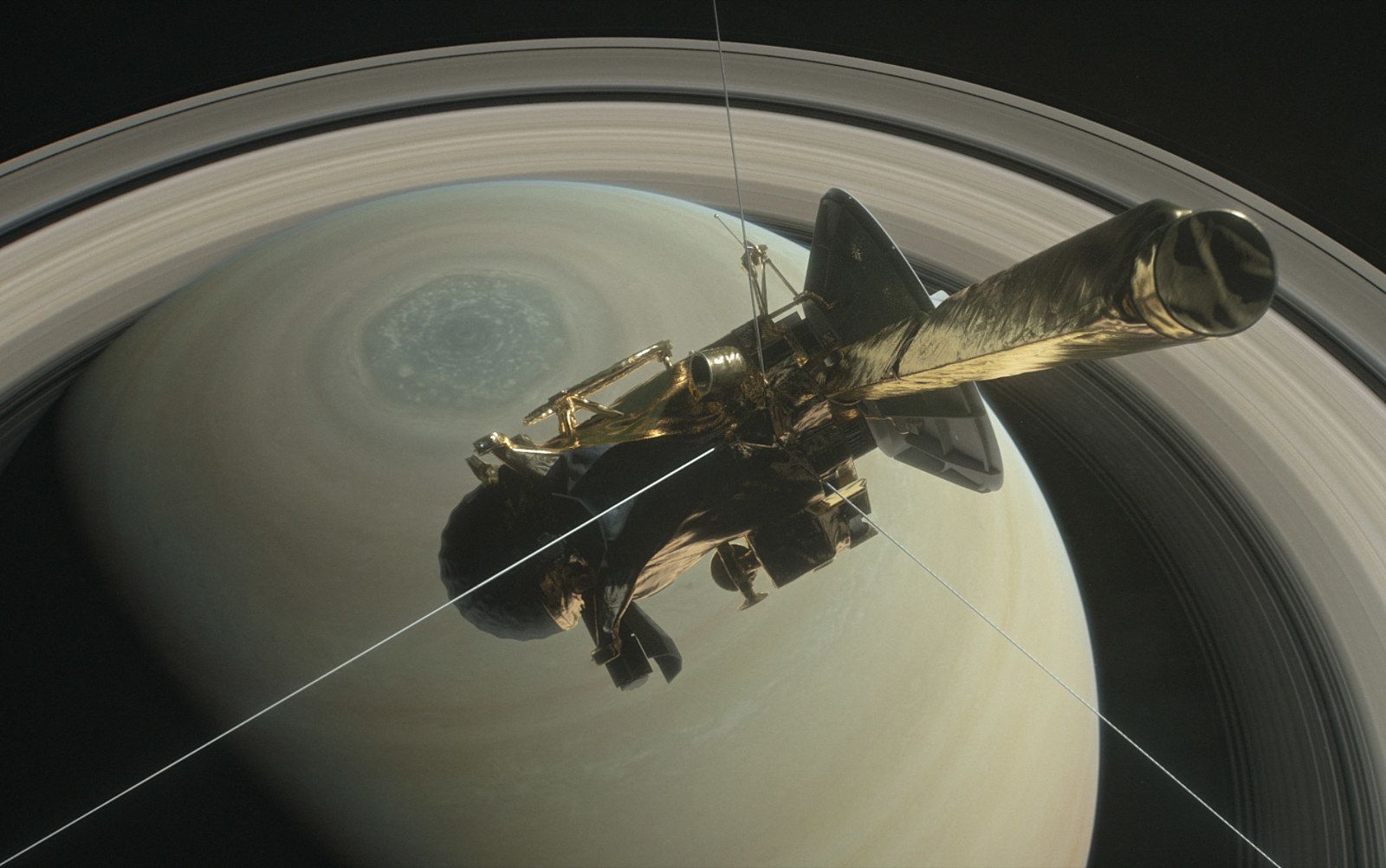
The final voyage of NASA's Cassini spacecraft, which has been in orbit around Saturn since 2004, will see the probe dive between the planet's rings before plunging into the atmosphere to destroy itself.
In anticipation of Cassini's last mission—set to begin April 26 and finish September 15—the space agency has shared a simulation of its storied spacecraft as it performs its grand finale, which will take it closer to Saturn than any manmade craft has ever been before.
"No spacecraft has ever gone through the unique region that we'll attempt to boldly cross 22 times," said Thomas Zurbuchen, associate administrator for the Science Mission Directorate at NASA Headquarters in Washington.
"What we learn from Cassini's daring final orbits will further our understanding of how giant planets, and planetary systems everywhere, form and evolve. This is truly discovery in action to the very end."
In the two decades since it launched from Earth, Cassini has made several significant discoveries, including a global ocean hidden beneath an ice crust on Saturn's moon Enceladus, and a liquid methane sea on Saturn's moon Titan.
Over the next five months, NASA scientists hope Cassini will help deliver insights into the planet's internal structure and the origins of the rings. The last of the spacecraft's fuel will then be used to blast it through Saturn's atmosphere in order to disintegrate it and not have it cause any environmental damage to the planet's rings or moons.
"This planned conclusion for Cassini's journey was far and away the preferred choice for the mission's scientists," said Linda Spilker, Cassini project scientist at NASA's Jet Propulsion Laboratory (JPL) in Pasadena, California.
"Cassini will make some of its most extraordinary observations at the end of its long life…
"Cassini's grand finale is so much more than a final plunge. It's a thrilling final chapter for our intrepid spacecraft, and so scientifically rich that it was the clear and obvious choice for how to end the mission."
Uncommon Knowledge
Newsweek is committed to challenging conventional wisdom and finding connections in the search for common ground.
Newsweek is committed to challenging conventional wisdom and finding connections in the search for common ground.
About the writer
Anthony Cuthbertson is a staff writer at Newsweek, based in London.
Anthony's awards include Digital Writer of the Year (Online ... Read more
To read how Newsweek uses AI as a newsroom tool, Click here.








